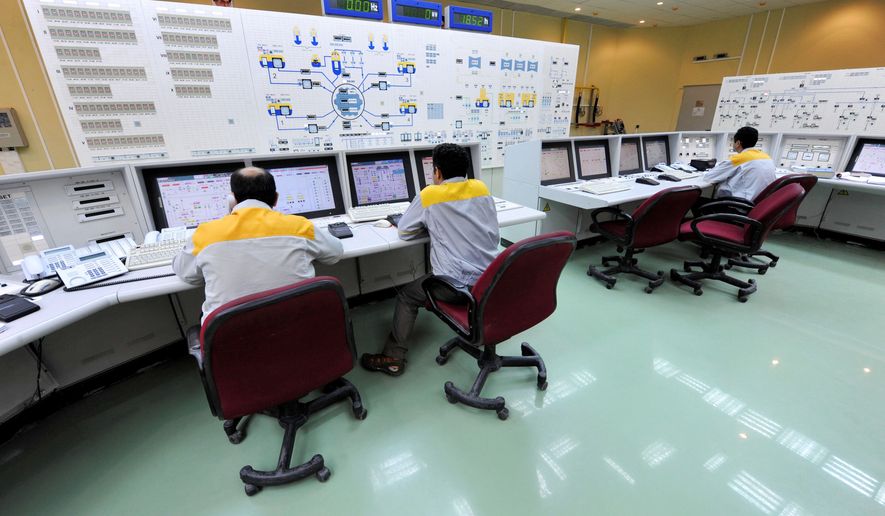A leaked report by the U.N. nuclear watchdog indicated Tuesday that Iran’s nuclear program experienced a one-day shutdown last week, indicating a slowing of Tehran’s nuclear progress, analysts said.
In a nine-page report, copies of which were obtained by several news outlets, the International Atomic Energy Agency (IAEA) noted that centrifuges at Iran’s Natanz enrichment nuclear plant were not being fed uranium on Nov. 16.
The number of installed centrifuges, the report said, had fallen from 8,856 to 8,426 over the past three months, presumably because of technical difficulties, though Iran increased its stockpile of low-enriched uranium to about 7,000 pounds — enough, analysts say, to produce two nuclear bombs if refined further.
“The key point is that [the report] underscores Iran’s continued failure to comply with its international nuclear obligations,” State Department spokesman Mark Toner said Tuesday.
The IAEA did not list a cause of the shutdown, but speculation centered on the Stuxnet computer worm that reportedly has bedeviled the Iranian nuclear program for months. Iranian nuclear chief Ali Akbar Salehi dismissed claims of Stuxnet’s impact Tuesday, saying, “[Iran’s] enemies failed to achieve their goal.”
Analysts said Iran’s rapid nuclear progress of a few years ago seems to have slowed.
“The significance of the IAEA report is that it’s far and away the best set of information about how well Iran’s nuclear program is doing, and the bottom line is that Iran has encountered some serious technical difficulties,” said Patrick Clawson, director of the Iran Security Initiative at the Washington Institute for Near East Policy.
“That means two things: One, the day of the reckoning is pushed off. And two, we may have a much longer period of time for prior notice of an Iranian breakout.”
On Monday, European Union foreign policy chief Catherine Ashton announced that nuclear talks between Iran and the five permanent members of the U.N. Security Council (the U.S., Britain, France, Russia and China), plus Germany, would resume Dec. 5, most likely in Geneva.
Diplomatic efforts have been on hold since October 2009, when Iran backed away from a deal to transfer its enriched uranium abroad to be converted into fuel roads for nuclear energy.
The West, which accuses Iran of seeking nuclear weapons — a charge Tehran denies — has intensified economic pressure on the regime. In June, the Security Council passed a fourth round of sanctions, which were followed later that month by further U.S. and EU restrictions.
Mr. Clawson said there is a “reasonable chance” Iran might now be open to the fuel-swap deal: “The West is going to be able to say to them, ’You haven’t gotten anywhere with your nuclear program in the last year, you’re paying a price for sanctions and — by the way — we’ll impose more sanctions if you don’t agree to this.’”
Iranian President Mahmoud Ahmadinejad has remained defiant in the face of Western pressure.
“The evil [world] powers are too insignificant and therefore could do nothing to stop Iran’s progress as today Iran is united and ready to pave its way toward technological progress,” Mr. Ahmadinejad said Tuesday.
• Ben Birnbaum can be reached at 138247@example.com.




Please read our comment policy before commenting.